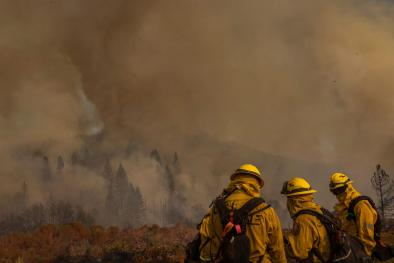Study: Climate Change Could Push Heat and Humidity Past Survivable Limits for Humans

When it gets too hot and humid, sweating doesn't cool you off any more, and the heat becomes deadly. New research shows that climate change will bring hours, days and even weeks of lethal heat and humidity, when just being outside is dangerous. The study published Monday in Proceedings of the National Academy of Scientists models how many places could soon see measures of heat and humidity higher than what the human body can survive— limits that have thus far been breached for just a few hours in the Middle East and Southeast Asia—under various warming scenarios. Under just 2 degrees Celsius of warming by the end of the century, Delhi could experience 39 hours of too-hot-to-survive conditions each year, Dubai more than 117, and Dammam, Saudi Arabia a whopping 223.6 hours each year—nearly 10 days. Over 2°C of warming will put 4 billion people in Pakistan, India, China and Africa at risk of lethal outdoor conditions, and at 3 degrees of warming, areas of the U.S. start to reach these survivability thresholds. Major cities like New York and Chicago will begin to experience literally unlivable temperatures, and humidity stress spots concentrated on the coast of the Gulf of Mexico, in the Missouri and Mississippi River Valleys, and the Atlantic seaboard will further impact tourism, agriculture, and other outdoor recreation and industry activity. “Around the world, official strategies for adapting to the weather focus on temperature only,” co-author Qinqin Kong of Purdue University said in a statement. “But this research shows that humid heat is going to be a much bigger threat than dry heat.”
(Washington Post $, CNN, Axios)
To receive climate stories like this in your inbox daily click here to sign up for the Hot News Newsletter from Climate Nexus:
Related Content



